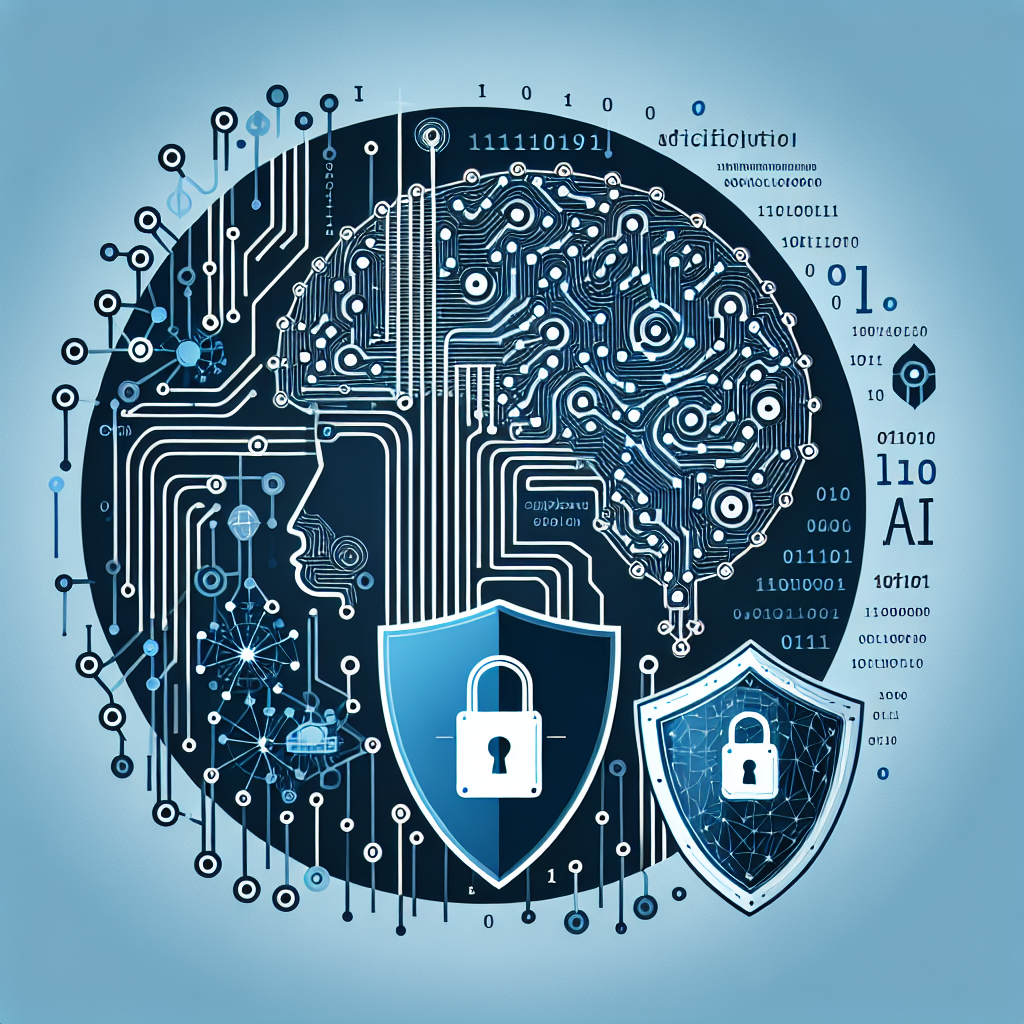In today’s digital world, the threat of cyber attacks is ever-present. With cybercriminals constantly evolving their tactics and techniques, it is crucial for organizations to stay one step ahead in order to protect their sensitive data and assets. One of the ways that businesses are increasingly turning to for proactive cybersecurity defense is artificial intelligence (AI).
AI has the potential to revolutionize cybersecurity by allowing organizations to detect and respond to threats in real-time. By using machine learning algorithms, AI can analyze massive amounts of data to identify patterns and anomalies that may indicate a cyber attack. This proactive approach to cybersecurity defense can help organizations to prevent breaches before they occur, rather than reacting to them after the fact.
There are several ways in which AI can be used to enhance cybersecurity defenses. One of the most common applications is in threat detection. AI can be trained to recognize known patterns of malicious behavior and flag any suspicious activity in real-time. This can help organizations to quickly identify and respond to potential threats before they have a chance to cause damage.
AI can also be used for automated incident response. By setting up AI-powered systems to automatically respond to certain types of threats, organizations can reduce the time it takes to mitigate a cyber attack. This can be especially useful in the case of fast-moving threats, such as ransomware attacks, where every minute counts.
Another area where AI can be beneficial is in predictive analytics. By analyzing historical data and identifying trends, AI can help organizations to predict where future attacks may come from and take proactive measures to defend against them. This can give organizations a significant advantage in staying ahead of cybercriminals.
In addition to threat detection and incident response, AI can also be used to enhance other aspects of cybersecurity, such as vulnerability management and compliance monitoring. By automating routine tasks and processes, AI can help organizations to free up their cybersecurity teams to focus on more strategic initiatives.
Despite its many benefits, AI in cybersecurity also comes with its own set of challenges. One of the main concerns is the potential for AI to be exploited by cybercriminals. If hackers are able to compromise an AI-powered system, they could use it to launch targeted attacks or manipulate the system to their advantage. This highlights the importance of implementing strong security measures to protect AI systems from unauthorized access.
Another challenge is the need for skilled cybersecurity professionals to effectively manage and oversee AI-powered systems. While AI can automate many routine tasks, human oversight is still necessary to ensure that the system is functioning properly and responding effectively to threats. Organizations will need to invest in training and development programs to ensure that their cybersecurity teams have the skills and knowledge needed to work with AI.
Despite these challenges, the potential of AI in proactive cybersecurity defense is immense. By harnessing the power of AI, organizations can strengthen their cybersecurity defenses and stay ahead of the ever-evolving threat landscape. As AI continues to advance and mature, it will become an essential tool in the fight against cybercrime.
FAQs:
Q: How does AI improve cybersecurity defenses?
A: AI can improve cybersecurity defenses by analyzing massive amounts of data in real-time to detect and respond to threats. It can also automate incident response and predictive analytics to help organizations stay ahead of cybercriminals.
Q: What are the potential challenges of using AI in cybersecurity?
A: Some potential challenges of using AI in cybersecurity include the risk of AI being exploited by cybercriminals, the need for skilled cybersecurity professionals to manage AI systems, and the potential for bias in AI algorithms.
Q: How can organizations protect AI systems from cyber attacks?
A: Organizations can protect AI systems from cyber attacks by implementing strong security measures, such as encryption, access controls, and regular security audits. It is also important to train cybersecurity teams to effectively manage and oversee AI-powered systems.

